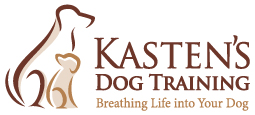Training a dog can be a rewarding experience, but it also comes with its challenges. Many dog owners, eager to see quick results, make common mistakes that can hinder their dog’s progress. Understanding these pitfalls is crucial to ensuring effective and lasting training. Let’s review the most common mistakes to avoid when training your dog!
Inconsistency in Training
One of the most significant mistakes dog owners make is inconsistency. Dogs thrive on routine and predictability. When commands, rules, or training schedules change frequently, it confuses the dog and slows their learning process. Consistency helps reinforce the behaviors you want to see and ensures the dog understands what is expected of them. Maintaining a regular training routine through a program fosters clear communication between you and your dog.
Lack of Patience
Training a dog requires patience. Many owners expect immediate results and get frustrated when progress is slow. This frustration can lead to negative reinforcement, which is counterproductive. Dogs, like humans, learn at their own pace, and it’s essential to celebrate small victories along the way. Positive reinforcement helps build a dog’s confidence and encourages them to repeat desirable behaviors.
Using Harsh Training Methods
Using harsh training methods, such as yelling, physical punishment, or using shock collars, can harm your dog’s mental and physical well-being. These methods can lead to fear, anxiety, and even aggression. Positive reinforcement techniques, such as rewarding good behavior with treats, praise, or play, are far more effective and humane.
Not Addressing Behavioral Issues Early
Ignoring minor behavioral issues can lead to more significant problems down the line. It’s essential to address unwanted behaviors as soon as they arise. Early intervention can prevent these behaviors from becoming ingrained habits.
Lack of Socialization
Proper socialization is crucial for a well-adjusted dog. During their formative months, dogs not exposed to various environments, people, and other animals can develop fears and anxieties. Socialization should be a gradual process, introducing your dog to new experiences in a controlled and positive manner.
Lack of Exercise and Stimulation
Dogs need both physical exercise and mental stimulation to stay healthy and happy. A lack of either can lead to boredom and destructive behaviors. Incorporating regular exercise and engaging activities into your dog’s routine is vital.
Professional Training vs. Personal Training
While many dog owners attempt to train their dogs themselves, professional training offers several advantages. Professional trainers have the expertise and experience to address a wide range of behavioral issues and tailor training programs to the specific needs of each dog. They use proven techniques that are both effective and humane.
Personal training can be rewarding, but it often lacks the consistency and structure that professional training provides. Professional trainers can help identify and correct mistakes owners might be unaware of. Additionally, professional training often leads to faster and more lasting results. At Kasten’s Dog Training, our team of experienced trainers is dedicated to providing customized training programs that meet your dog’s unique needs.
Contact Us Today!
At Kasten’s Dog Training, we are committed to helping you and your dog build a strong, positive relationship through effective training. Visit our website or contact us today to learn more about our services and how we can assist you in reaching your training goals.




